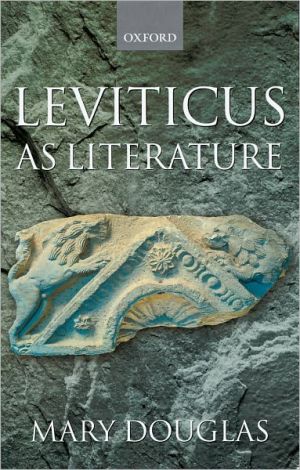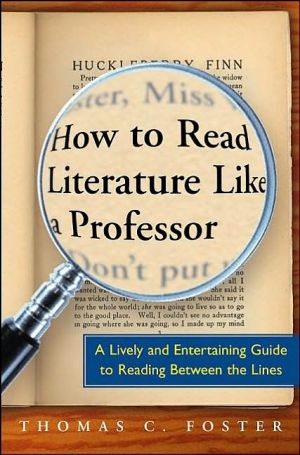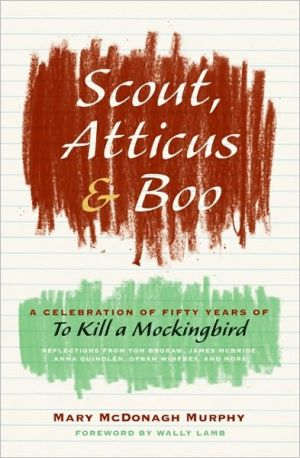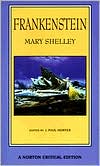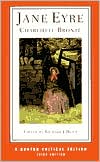Leviticus as Literature
This first full-scale account of Leviticus by a world renowned anthropologist presents the biblical work as a literary masterpiece. Seen in an anthropological perspective Leviticus has a mystical structure which plots the book into three parts corresponding to the three parts of the desert tabernacle, both corresponding to the parts of Mount Sinai. This completely new reading transforms the interpretation of the purity laws. The pig and other forbidden animals are not abhorrent, they command...
Search in google:
This first full-scale account of Leviticus by a world renowned anthropologist presents the biblical work as a literary masterpiece. Seen in an anthropological perspective Leviticus has a mystical structure which plots the book into three parts corresponding to the three parts of the desert tabernacle, both corresponding to the parts of Mount Sinai. This completely new reading transforms the interpretation of the purity laws. The pig and other forbidden animals are not abhorrent, they command the same respect due to all God's creatures. Boldly challenging several traditions of Bible criticism, Mary Douglas claims that Leviticus is not the narrow doctrine of a crabbed professional priesthood but a powerful intellectual statement about a modern religion which emphasizes God's justice and compassion. Shows Leviticus to be a major philosophical and rhetorical achievement.Times Literary SupplementLeviticus is surely the least-read book of the Bible. Considered, at best, tedious and boring, at worst the source of Jewish legalism and exclusivity, it has remained, by and large, the province of Talmudists and biblical scholars. In the renewal of interest in the literary and formal qualities of the Bible which has been evident in recent years, Leviticus has been largely passed over in silence. And yet, in the past decade, there has been evidence of a growing interest in it as, perhaps, the ultimate challenge to notions of the readability of the Bible, of its status as a great ancient masterpiece on a par with the Homeric epics. In 1996, Sheffield Academic Press, which has done so much for Bible studies in recent years, brought out a volume of essays by distinguished scholars and critics, entitled Reading Leviticus; and in a recent issue of the American journal Judaism we have the surprising sight of two non-Jews, the English philosopher Bernard Harrison and the German artist Franziska Bark, writing with passion and insight about Leviticus as a key book of the Hebrew Bible, and one containing a great deal to teach and enlighten even those of no religious persuasion. And Mary Douglas has stepped in with a rich, dense work entitled Leviticus As Literature.
1. The Ancient Religion2. Two Styles of Thought3. Two Styles of Writing4. Mountain, Tabernacle, Body in Leviticus 1-75. The Totally Reformed Religion6. Oracles Support Divine Justice7. Land Animals, Pure and Impure8. Other Living Beings9. Atonement for Sick Bodies10. The Two Screens11. Inside the House/Book of God12. Inside the Holy of Holies
\ Times Literary SupplementLeviticus is surely the least-read book of the Bible. Considered, at best, tedious and boring, at worst the source of Jewish legalism and exclusivity, it has remained, by and large, the province of Talmudists and biblical scholars. In the renewal of interest in the literary and formal qualities of the Bible which has been evident in recent years, Leviticus has been largely passed over in silence. And yet, in the past decade, there has been evidence of a growing interest in it as, perhaps, the ultimate challenge to notions of the readability of the Bible, of its status as a great ancient masterpiece on a par with the Homeric epics. In 1996, Sheffield Academic Press, which has done so much for Bible studies in recent years, brought out a volume of essays by distinguished scholars and critics, entitled Reading Leviticus; and in a recent issue of the American journal Judaism we have the surprising sight of two non-Jews, the English philosopher Bernard Harrison and the German artist Franziska Bark, writing with passion and insight about Leviticus as a key book of the Hebrew Bible, and one containing a great deal to teach and enlighten even those of no religious persuasion. And Mary Douglas has stepped in with a rich, dense work entitled Leviticus As Literature.\ \
